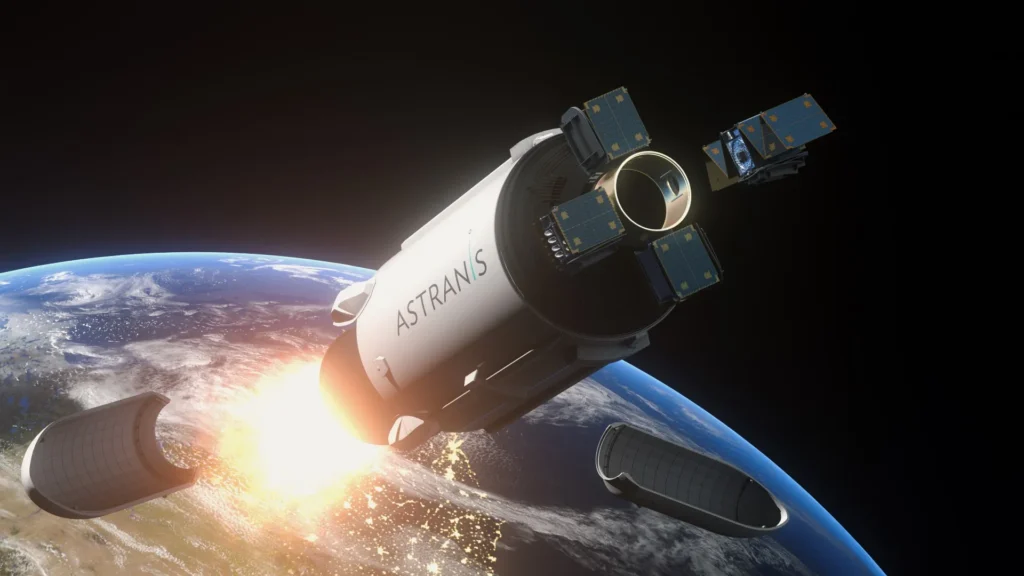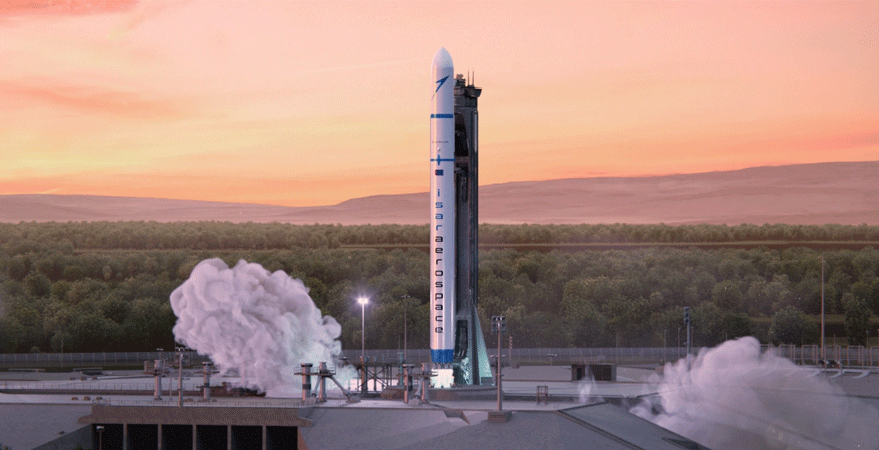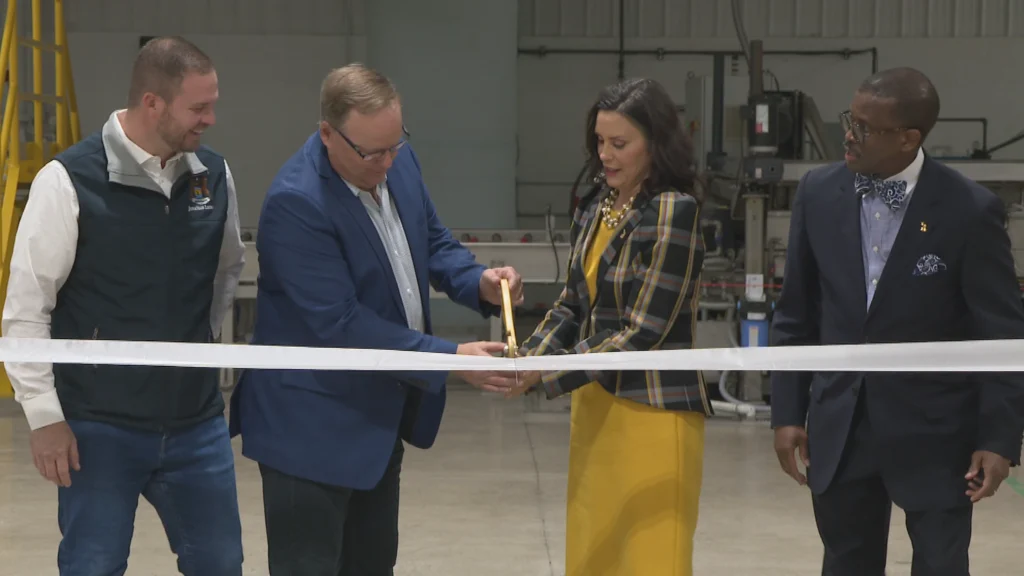For capital-intensive startups in sectors like space tech, biotech and energy, venture debt is an essential part of the financing mix.
A complement to equity investing, venture debt provides ambitious founders with the ability to extend their runway and reach important milestones without overly diluting their equity. It enables them to make important investments in covering upfront operational expenses, expanding their teams, pursuing their product development or exploring international expansion.
Venture debt also acts as an important signal of confidence to current and future investors, by demonstrating that a credible lender recognizes the potential of the startup and its business model.
For 25 years, ATEL Ventures has worked with venture capital (VC) firms to lend hundreds of millions of dollars that have propelled scores of startups towards meeting their goals. Here are just some of our recent success stories:
Astranis: An Eight-Year Countdown
Astranis is a space startup that builds small and low-cost telecommunications satellites to provide internet access in remote regions. The company has raised more than $750M through a combination of venture rounds and debt financing, and is today valued at over $1.5B.
The company’s recent $200M Series D round enabled it to fully fund its Omega range of satellites, but designing and building a new generation of satellites is a costly and time-consuming process, fraught with logistical, operational, technical and regulatory obstacles, and it has been a long journey to this point.

The San Francisco company was founded in 2015 and did not launch its first satellite until 2023. In an interview with TechCrunch at that time, co-founder and CEO John Gedmark reflected on the company’s early challenges, which included securing premises, developing new technology and attracting the necessary talent, not to mention navigating lengthy and complex procurement processes with the U.S. and foreign governments: “The toughest [time] was probably the last year or so as we were really getting close to launch, but the launch got delayed,” he said. “That happened several times.”
Astranis’ eight-year countdown from inception to launch is not unusual for the space tech sector and the fact that big name venture investors like Y Combinator, Andreessen Horowitz, Black Rock and BAM Elevate kept the faith over that period is testament to their belief in the potential of both the company and the sector.
However, equity investment alone would not have been sufficient to get Astranis off the launch pad. Gedmark and his team have also been astute enough to make strategic use of venture debt and we are proud to have been a part of that: Astranis stands to not only transform the satellite industry, but to bring internet connectivity to many millions of people, with all of the opportunity that creates in terms of access to information, education and commerce.
Isar Aerospace: Cutting-Edge Technology
Isar Aerospace is another company revolutionizing access to space. Founded and headquartered in Munich, Germany, Isar Aerospace is developing Spectrum, a two-stage rocket specifically designed to launch small to medium satellites and satellite constellations into orbit.
The company aims to make access to space more flexible and cost-efficient and the satellites that will be launched by Isar’s Spectrum vehicle will have many uses: They have the capacity to bring internet connectivity to rural communities and those in developing countries—currently around one-third of the earth’s population. They can also enable multiple use cases around Earth Observation or Navigation and will have a key role in fighting climate change and enabling smart mobility.

Isar Aerospace uses advanced technologies and a high degree of automation in its manufacturing. The type of state-of-the-art equipment used in the production of its launch vehicles did not previously exist and the leadership team recognized the valuable role that venture debt could play in its development, alongside the $400M+ raised through equity financing from leading European VCs including HV Capital, Earlybird Venture Capital, Lakestar and the NATO Innovation Fund. In June 2024, ATEL lent Isar Aerospace $20M to help finance its requirements for cutting-edge manufacturing equipment.
The satellite market is expected to be worth $1TN by 2040. Launch is the key bottleneck in that revolution and we expect Isar Aerospace to play a major part in it by enabling flexible and cost-efficient access to space.
LuxWall: Greening Our Buildings
LuxWall is a Michigan-based manufacturer of vacuum-insulated glass that improves the energy efficiency of buildings and homes by reducing building energy draw and lowering heating and cooling losses.
After an initial seed round in 2021, the company raised $33M of Series A financing in 2023, attracting investments from leading funds including Bill Gates’s Breakthrough Energy Ventures, Khosla Ventures and the Danish firm, 2150.
As businesses and governments alike race to reduce their carbon emissions, demand for LuxWall’s innovative products was such that expanded production facilities quickly became an imperative. LuxWall CEO Scott Thomsen and his team looked to venture debt to fuel the necessary expansion without diluting the equity of their shareholders, and ATEL Ventures stepped in.
In August 2024, LuxWall Michigan Governor Gretchen Whitmer joined Scott Thomsen and state and local officials in officially opening the company’s new clean-energy manufacturing compound in Litchfield, MI, which will host the world’s first high-volume vacuum-insulating glass production facilities. The Litchfield site is part of a two-phase, $165-million investment that will create 450 new jobs. The new facility features automated manufacturing, quality control, office space and laboratories to produce advanced, energy-efficient window products that will be sold in the U.S., Canada, and Europe, helping to mitigate the environmental impact of commercial and residential buildings.

Borrowing Against a Better Future
Ambitious startups like Astranis, Isar Aerospace and LuxWall are working on solutions to some of the world’s most pressing challenges, and they are not alone. Hundreds of entrepreneurs are pushing the boundaries in other fields too, including mobility, telecommunications, green chemistry and biotech.
To do that requires not just vision and technical knowhow, but capital–capital to develop new tools and equipment, to hire talent, to build or lease production facilities, and navigate complex regulatory environments.
For these and other startups, venture debt is an essential component of the financing stack and ATEL Ventures is proud to support them.
